Breed Info
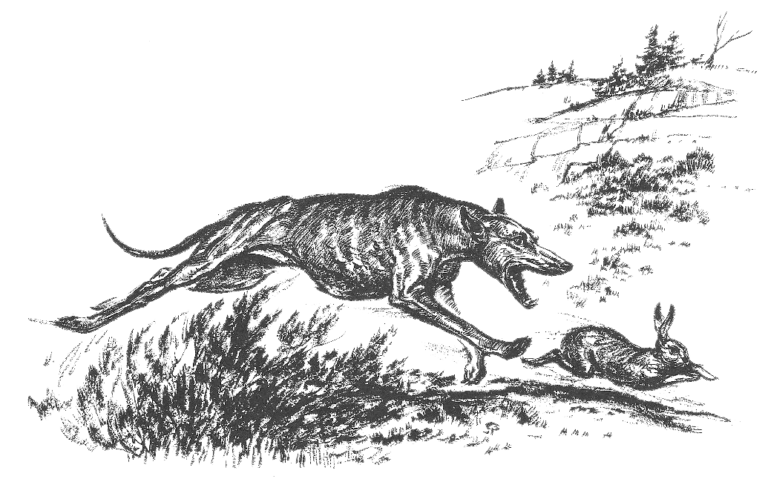
The Whippet is a medium-sized sighthound … bred to hunt by sight, coursing game in open areas at high speeds. The modern Whippet was created by working-class people of northern England by crossing Greyhounds with several other breeds, including the Italian Greyhound and a now-extinct long-legged terrier. These small coursing hounds were cheaper to feed and house than Greyhounds, but very handy at providing rabbits for the pot. They also were used to provide sport on non-working days as their owners enjoyed racing them against each other. The modern look of the breed was created by upper-class English dog fanciers, who bought the best-looking Whippets and bred them selectively to appear most similar to a “Greyhound in miniature.”
Read the AWC Illustrated Breed Standard.
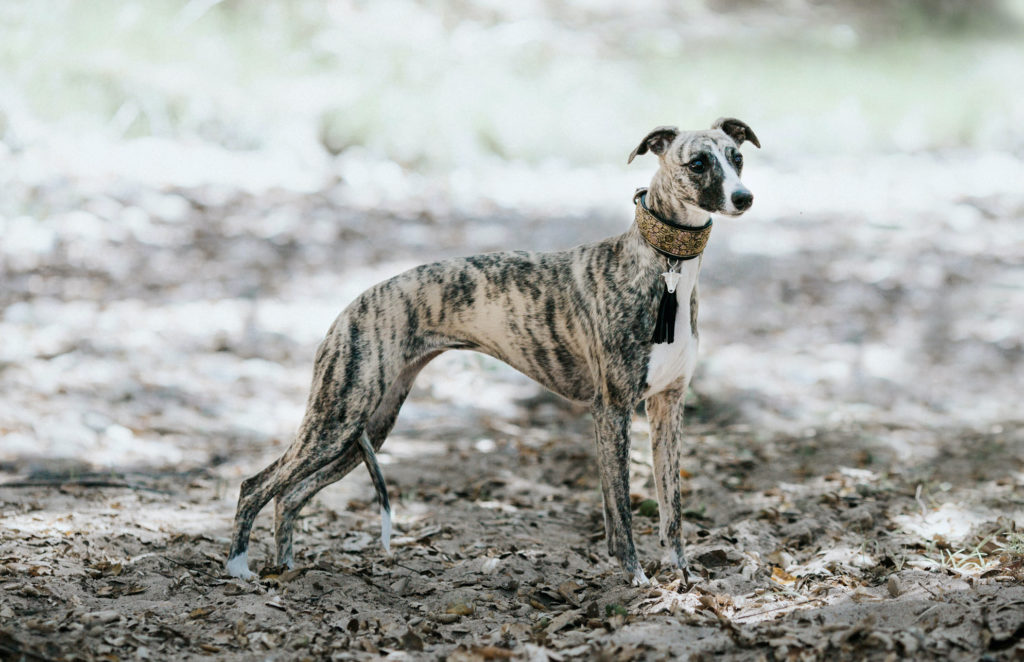
Whippets get along very well with toddlers and children when properly socialized around them as puppies. It is important, however, for children to always be supervised while interacting with any dog and to understand that dogs have boundaries too.
Grooming is minimal for this breed, which is one of the great advantages of Whippet ownership: cutting their nails regularly, bathing as needed and keeping them free of parasites. In between baths, you can wash their feet or wipe off minor mud and dirt with a damp towel.
Whippets are not generally prone to food allergies or sensitivities, and most individuals do well with a quality kibble and lots of fresh water. We feed Royal Canin kibble two times per day. Our dogs love freeze dried treats as well. We do not advocate or feed grain-free kibble. Free-feeding is also not recommended.
Whippets do not require excessive exercise, but they do need a daily chance to walk and run. A small fenced yard will work if you can visit a large fenced area three times or more per week. Whippets are usually calm in the house but if your Whippet does not get enough mental and physical exercise, he may become destructive or hyperactive in the house.
Personality & Temperament
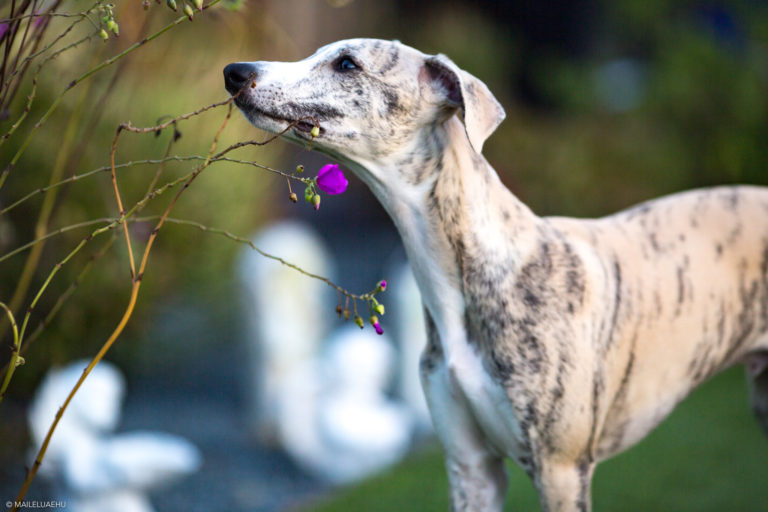
Whippets are generally quiet and gentle dogs, content to spend much of the day sleeping on the couch, crated, or on one of the soft dog beds popular with Whippet owners. They are not generally aggressive with other animals, and they are friendly to visitors. They are not prone to snapping, so they are good with young children so long as the children are gentle with them. Instead of biting or growling, many Whippets confronted with children who are too loud or physical with them often look for a place to hide. They may or may not bark when strangers arrive, and most are not suited to being guard dogs due to their trusting and unsuspicious nature. Every new encounter is treated by most Whippets as a chance to make a new friend.
Health & Longevity
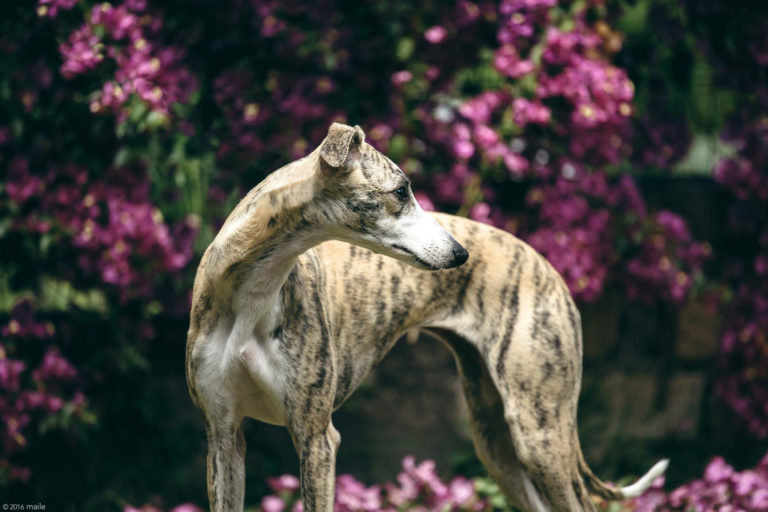
The Whippet is generally considered to be among the healthier breeds of purebred dog, with very few health problems that require frequent maintenance or lifelong medication. Given proper nutrition, exercise and veterinary care, most Whippets will live for 12 to 15 years. They are generally not prone to the frequent ear infections, skin allergies, joint problems, food allergies or digestive problems that afflict other breeds in a significant portion of their populations.
Cardiac disease in the Whippet is an area of mounting concern, some of it driven by increased sensitivity of diagnostic testing, but also by the perception, widely-held, that cardiac problems have been increasing in the breed in recent years. To that end, the American Whippet Club recommends that breeding stock be given periodic echocardiograms and individuals with significant cardiac disease findings at younger ages not be used for breeding. Genetic eye defects have been found in the breed, but are still quite uncommon. Congenital deafness is also rare, but at least can be spotted in very young puppies.
Versatility
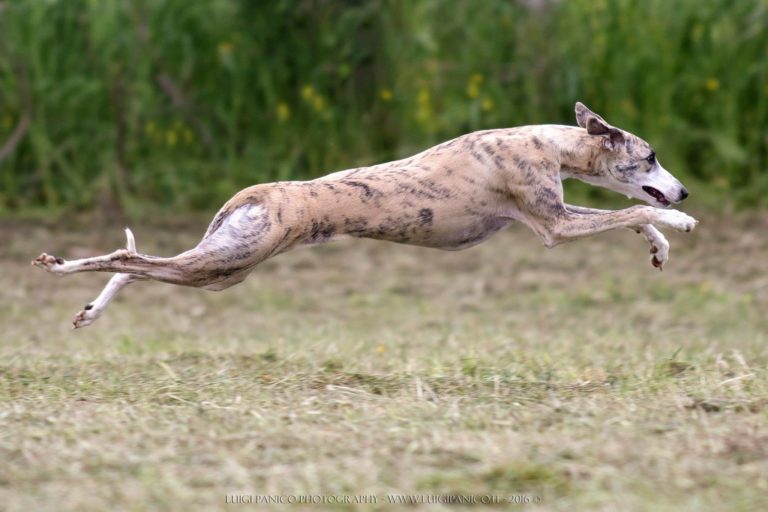
Whippets are truly a versatile breed participating and excelling in a wide range of activities that include: conformation, racing, lure coursing, obedience, rally, flyball, dock diving, nosework, barn hunt, and therapy work. The possibilities with a Whippet are endless!
Apartment living
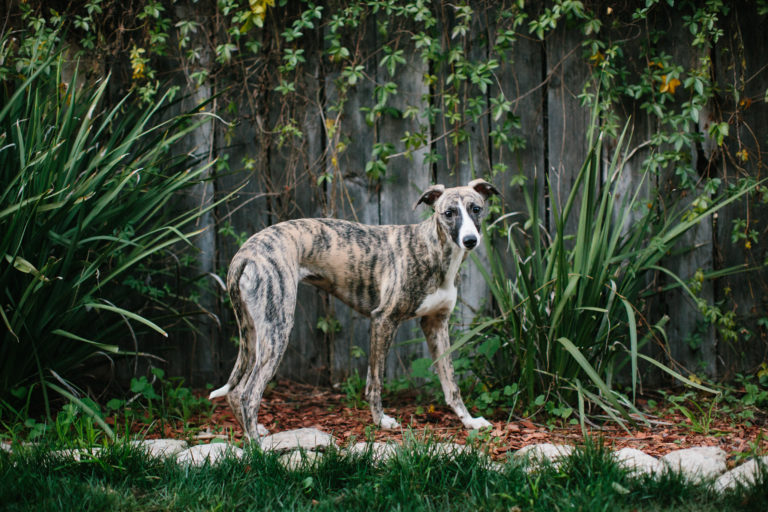
Whippet are generally not well-suited for apartment living. This breed needs a fair amount of daily exercise, and this means a free run in a fully fenced area. This is not a breed that can spend its entire life inside. Your Whippet will need to get out even in unpleasant weather. Keeping an athletic dog in an apartment means no matter how cold or hot the weather is, no matter how tired or sick you might be, the dog must be exercised. A Whippet without enough exercise can get into a lot of mischief and also have issues with proper muscle development.
whippet rescue & placement
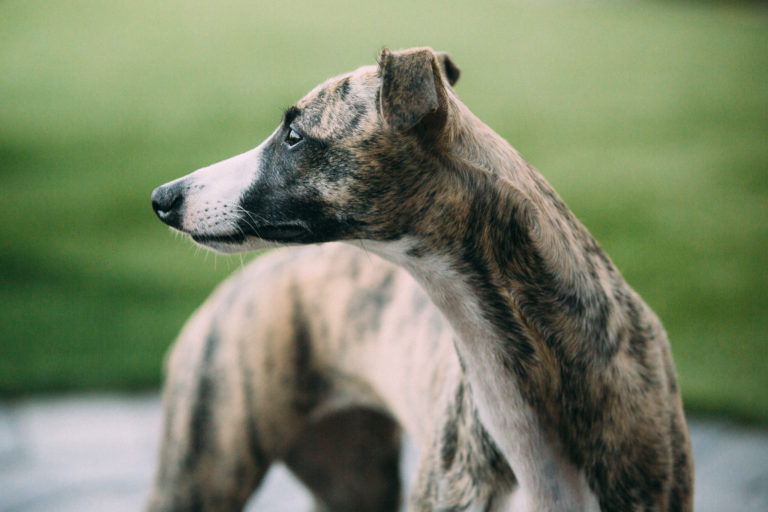
Whippet Rescue and Placement is a 501(c)(3) charity devoted to the rescue of purebred Whippets. WRAP has volunteers all across the continental United States, Alaska and Hawai‘i who assist Whippets who need placement in new homes. Please visit their website for more information if you are interested in rescuing a Whippet.


